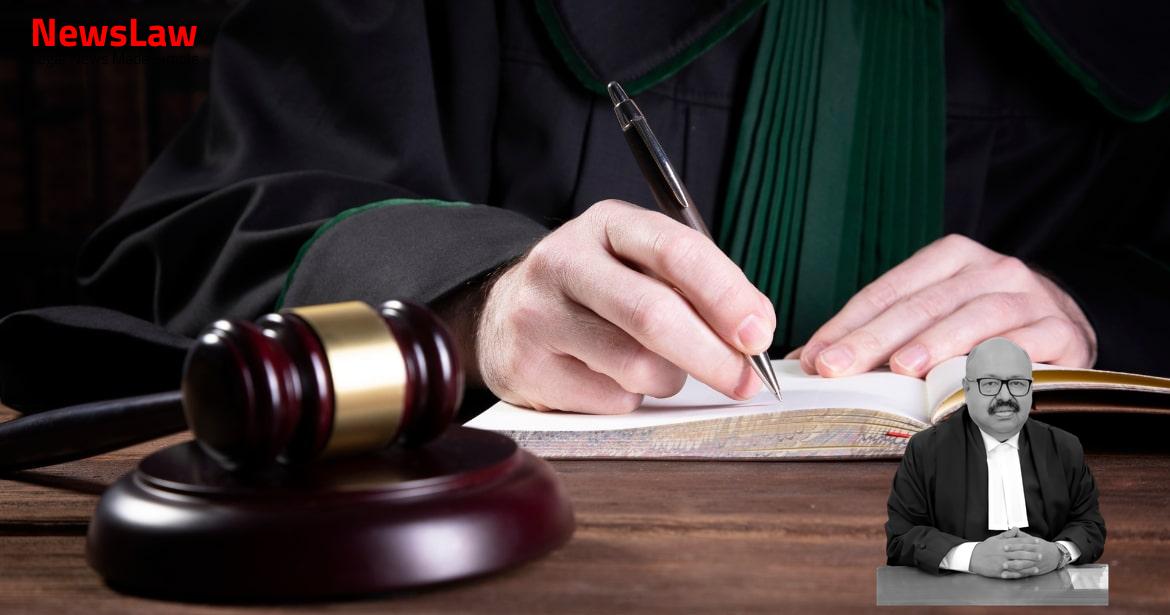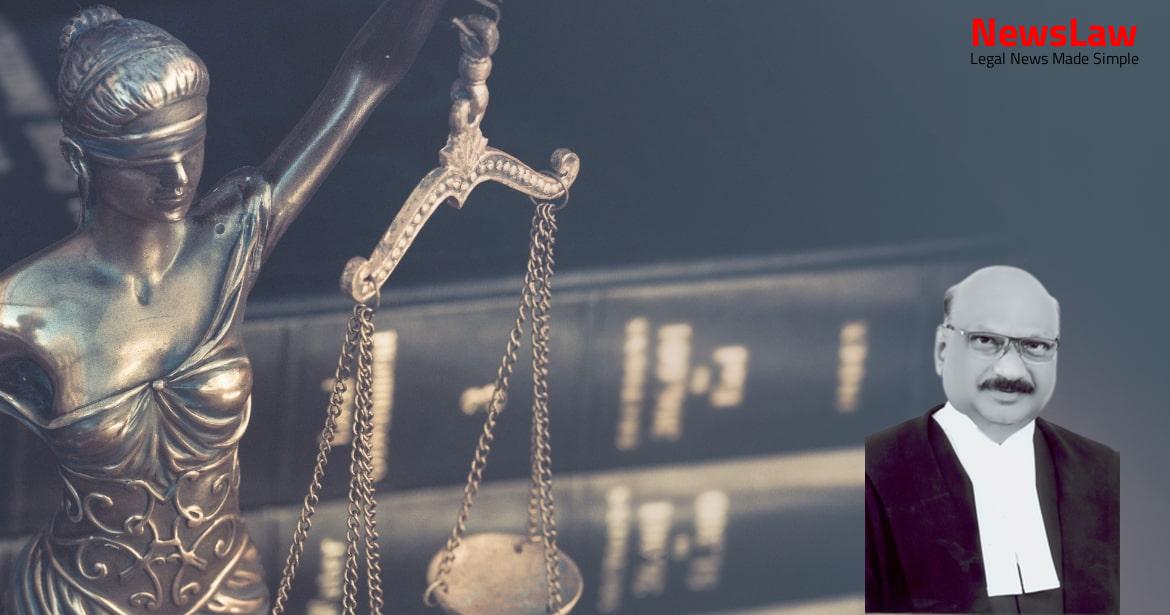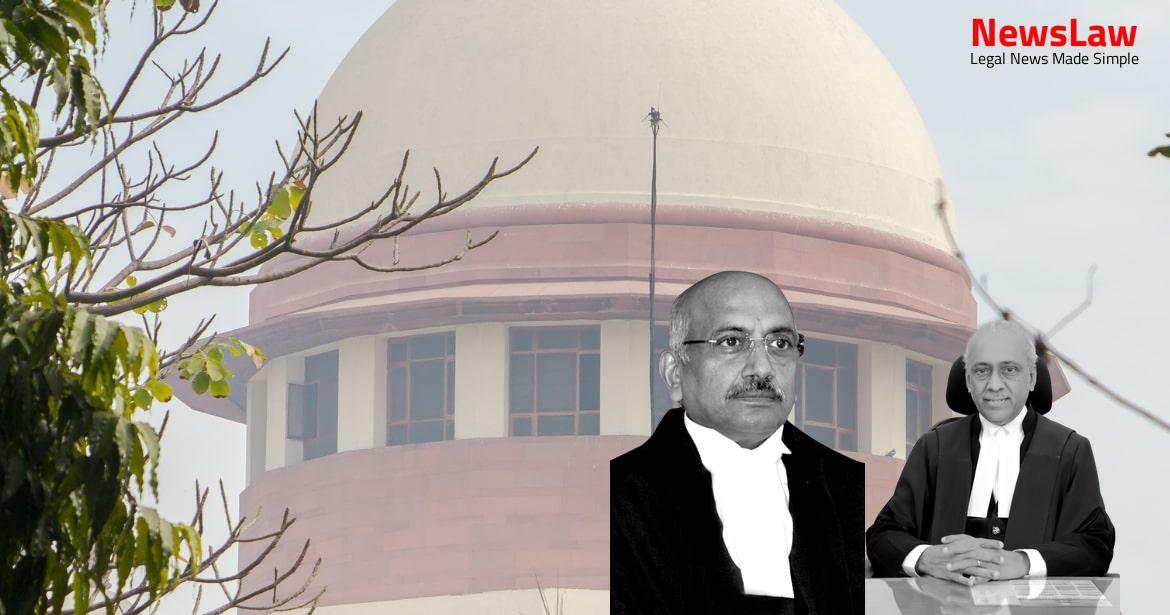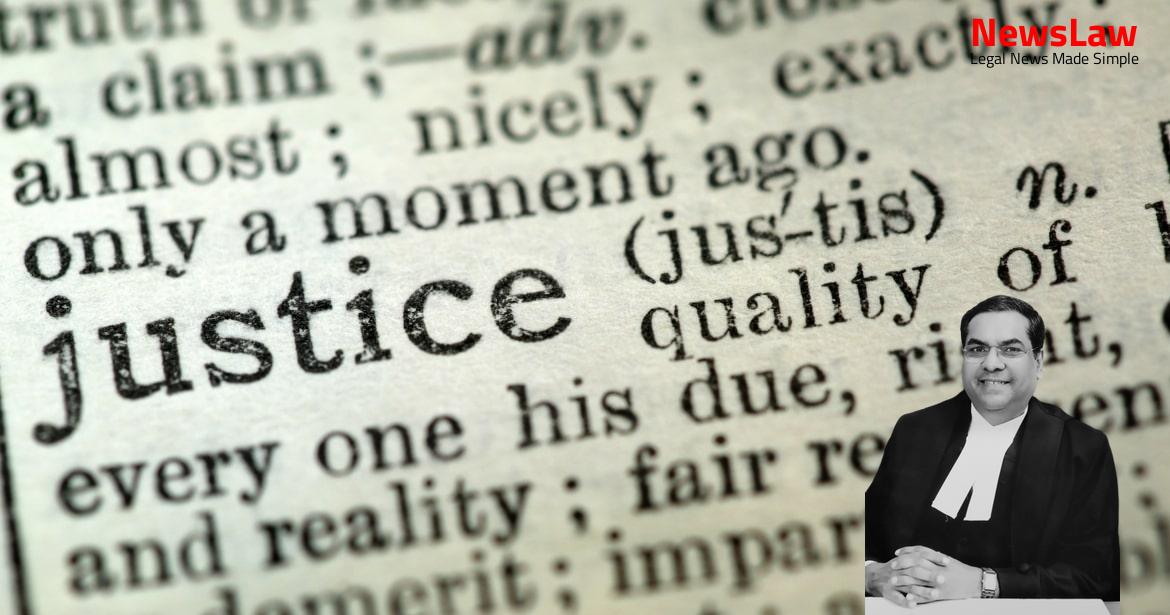Explore a detailed examination of the court’s legal analysis regarding the grant of seniority benefits in public service appointments. Delve into the principles of fairness and established norms that guide the determination of seniority among employees in the public sector. Discover the complexities and considerations involved in evaluating retrospective seniority claims and the court’s stance on upholding the integrity of the appointment process based on legal perspective.
Facts
- The appointment was conditional upon a physical fitness certificate issued by the Civil Surgeon.
- Appointment would be effective only after due satisfaction of capability and educational qualifications.
- The respondent was recommended for appointment on compassionate basis based on a committee’s decision.
- The respondent was appointed on 27.2.1996 after the father’s death who was a Homeguard.
- An application for seniority from 5.12.1985 was made six years after joining, which was initially rejected.
- The rejection order was challenged in the Patna High Court and directed to consider seniority from 5.12.1985.
- The respondent was found deficient in physical standards during the appointment process.
- Respondent was denied appointment as Adhinayak Lipik due to not meeting physical standards of a Constable
- Supreme Court directed appointment of the respondent as Adhinayak Lipik in the Home Guard Department
- State’s appeal challenging the appointment was dismissed by the Division Bench
Also Read: Insurance Claim Repudiation due to Fire Incident: Court’s Legal Analysis
Issue
- Respondent was shortlisted for compassionate appointment in 1985 but was refused due to failing physical standards.
- Respondent was appointed in service on 10.2.1996 following a court direction.
- Respondent did not make any claim for retrospective seniority until filing a representation in 2002.
- In previous court proceedings, respondent was focused on securing appointment as Adhinayak Lipik.
Arguments
- Seniority benefit cannot be claimed for 10 years without working a single day.
- Latecomers cannot have precedence over those who entered service earlier.
- Court will not overturn determination if competent authority acted in good faith and on principles of fairness.
- Appellant cannot succeed based on these principles.
- The appellant submitted the representation within 1 year and 2 months of joining
- The appellant was considered a diligent litigant by the bench speaking through Justice Hemant Gupta
Analysis
- The respondent did not immediately claim the benefit of retrospective appointment after entering service.
- Claim for seniority from 5.12.1985 was rejected by the Authority on 20.11.2002.
- Retrospective seniority should not be allowed unless directed by court or expressly provided by Rules.
- Notional seniority was claimed within 1 year from the date of actual appointment.
- High Court should not have ordered seniority to be counted from 5.12.1985 when the respondent only entered service on 10.2.1996.
- Appellant’s claim was not delayed as the date of appointment was not claimed as 30-3-2009.
- The appellant was factually appointed on 22-12-2010 and could not assume charge prior to that date.
- Notional seniority should be granted from the date other candidates were appointed based on the common appointment process.
- The action of determining seniority from the date of entering service by the authorities is in line with the applicable laws.
- The State faithfully implemented the direction to appoint the respondent.
- The respondent did not address his claim earlier to the Supreme Court or the State after his appointment.
- The respondent’s appointment was a compassionate one without competitive recruitment, leading to delay in claiming rights compared to others.
- Retrospective seniority cannot be granted to an employee from a date when the employee was not borne on a cadre.
- Seniority among members of the same grade is counted from the date of initial entry into the grade.
- This principle is established in the Direct Recruit Class II Engineering Officers’ Association v State of Maharashtra case.
- The principle was reaffirmed in subsequent cases such as State of Bihar v Akhouri Sachindra Nath and State of Uttaranchal v Dinesh Kumar Sharma.
- Retrospective seniority should not be granted if found to be in error.
- The High Court’s decision to grant retrospective seniority was deemed incorrect.
- The appeal was allowed and the High Court’s orders were set aside.
- Notional seniority may be conferred in cases where denial of analogous appointment is found to be arbitrary and legally incorrect.
Decision
- The case has been disposed of.
- The parties are left to bear their own costs.
Case Title: STATE OF BIHAR Vs. ARBIND JEE (2021 INSC 560)
Case Number: C.A. No.-003767-003767 / 2010



